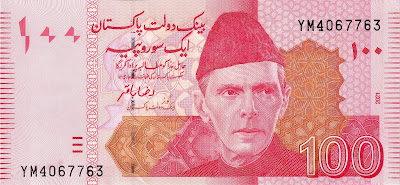The Nigerian Naira, represented by the symbol ₦ and the ISO code NGN, serves as the official currency of Nigeria, Africa's most populous country and largest economy. The journey of the Naira reflects Nigeria's complex history, economic aspirations, and challenges. From its inception to its current position in the global market, the Naira remains a symbol of Nigeria's resilience and determination to build a prosperous future.
The roots of the Naira can be traced back to Nigeria's colonial past. Prior to independence in 1960, Nigeria used the British West African pound as its currency, which was pegged to the British pound sterling. However, with the attainment of independence, Nigeria sought to establish its own national currency to symbolize its sovereignty and independence.
In 1973, the Central Bank of Nigeria introduced the Naira and Kobo as the official currency units, replacing the pound. The word "Naira" is derived from the combination of "Nigeria" and "aira," the monetary unit of Nigeria's northern region before independence. The introduction of the Naira marked a significant milestone in Nigeria's economic history, representing a break from its colonial past and the beginning of a new era of economic development.
Initially, the Naira was pegged to a basket of foreign currencies, including the British pound and the US dollar, to maintain stability and facilitate international trade. However, over time, the Naira's value has been subject to fluctuations influenced by various factors such as oil prices, government policies, inflation, and external shocks.
Nigeria's economy is heavily dependent on oil exports, with crude oil accounting for a significant portion of government revenue and foreign exchange earnings. As a result, fluctuations in global oil prices have a direct impact on the Naira's value, as seen during periods of oil price volatility.
In recent years, Nigeria has faced economic challenges such as low oil prices, recession, inflation, and foreign exchange shortages. These challenges have put pressure on the Naira, leading to depreciation against major foreign currencies and affecting the purchasing power of Nigerians.
To address these challenges, the Central Bank of Nigeria has implemented various monetary policy measures to stabilize the Naira and manage inflation. These measures include foreign exchange interventions, interest rate adjustments, and capital controls. Additionally, efforts to diversify the economy away from oil dependence and promote non-oil sectors such as agriculture, manufacturing, and services aim to reduce the vulnerability of the Naira to external shocks.
In the current market, the value of the Naira fluctuates against major currencies such as the US dollar, euro, and British pound. Exchange rate movements impact Nigeria's imports, exports, inflation rates, and overall economic stability. As such, monitoring the Naira's performance and implementing sound economic policies remain critical for Nigeria's economic development and prosperity.
The Nigerian Naira's origin reflects Nigeria's journey towards independence and economic self-reliance. Its value in today's market is influenced by a myriad of factors, highlighting the complexities of Nigeria's economy and the challenges it faces. Despite these challenges, the Naira remains a symbol of Nigeria's resilience and determination to build a strong and vibrant economy for the benefit of its people.


.jpeg)
.jpeg)
.jpg)
.jpg)

.jpeg)
No hay comentarios:
Publicar un comentario